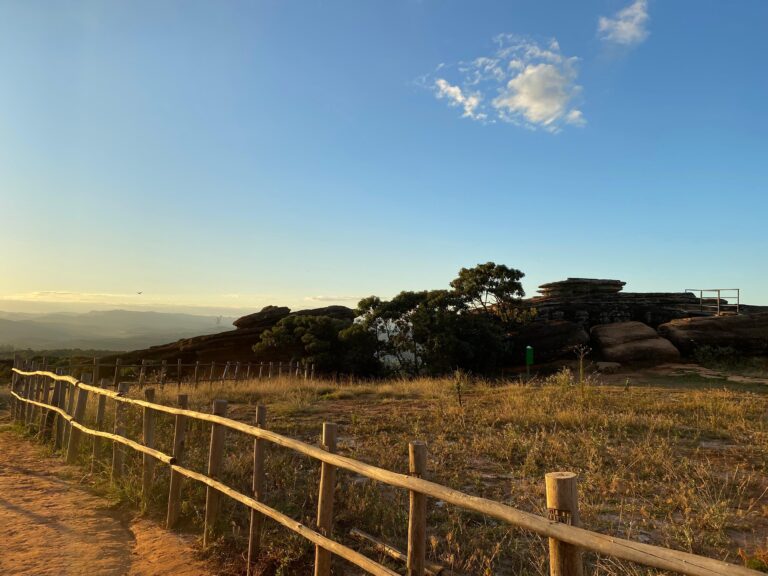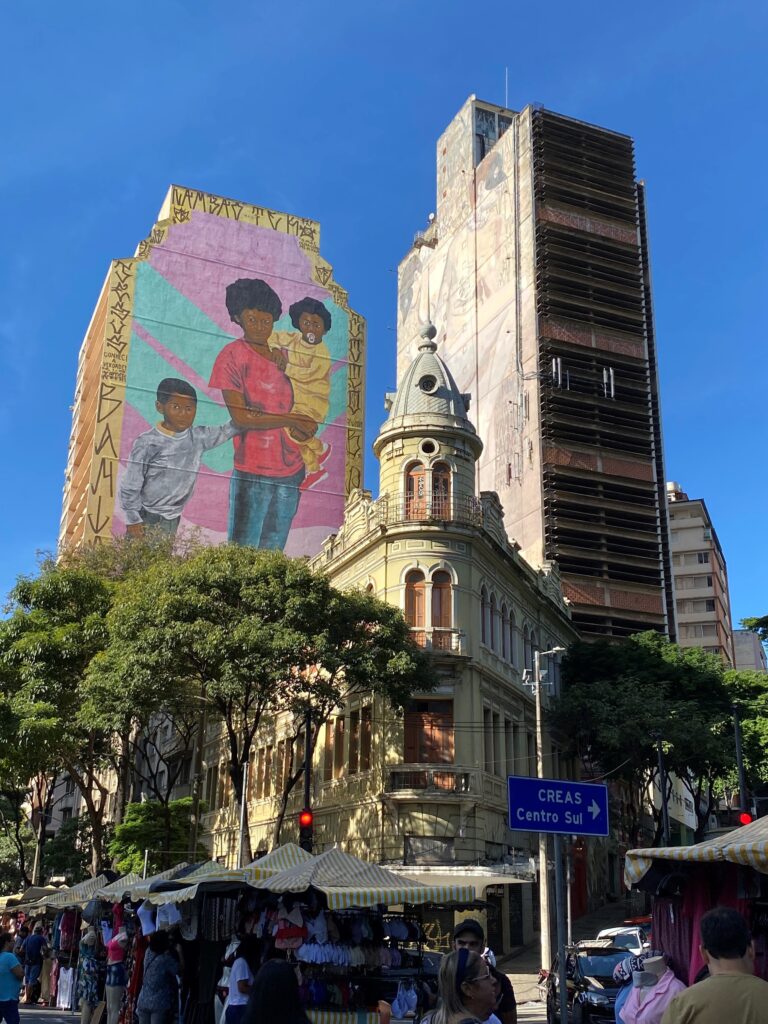Khulisa evaluators Margie Roper and Tamar Boddé-Kekana, both based in South Africa, recently traveled to Brazil for 12 days as part of two evaluations: Schools2030 and Anglo American Ambassadors for Good, an employee volunteer program. These are international projects, involving evaluations in multiple countries around the world, and while it’s important to implement the evaluations consistently worldwide, it is also important to tailor the evaluation strategies for each individual country. In traveling to Brazil, one of several goals that Margie and Tamar had was working with locals to learn about and understand cultural practices and other factors important to our work in the country.
The Ambassadors for Good program is a skills-based employee volunteering program that allows Anglo American and De Beers employees around the world to champion causes they are passionate about. The program empowers employees to share their unique talents with the communities where they live and work. Khulisa, led by Margie and Tamar, is working on evaluations of the Ambassadors for Good program in South Africa, the United Kingdom, and Brazil. Understanding social contexts, work culture, and other aspects of society in a huge, diverse country like Brazil is imperative to successfully implementing this project.
Understanding the Cultural Landscape in Brazil
“Evaluation is data driven,” says Margie, “and whether it is quantitative or qualitative, whether it’s a survey that you’re putting out or you’re doing site visits or interviews or transect walks through a community…It’s around how you capture the data.” Collecting quality data in a community is only possible once one understands how that community works.

For a project spanning multiple countries, the data must be useful in a global sense. But it’s also essential to “understand these local nuances so that you can pick up the differences in focus – what the priorities are in different cities or towns or rural areas or countries or regions – that can help guide the sustainability of the investments, future employee engagement, or future donor strategies,” says Margie.
Throughout their time in Brazil, which was focused around the city of Belo Horizonte and Conceição do Mato Dentro (CMD), Margie and Tamar worked closely with Louisa Rita Cardosa, a Brazilian researcher who helped the team understand specific local contexts. “We have an amazing resource in Louisa, who is able to negotiate and translate – and it’s not just about language,” Margie says. “When we’re doing an evaluation, [Khulisa is] coming in with expertise for these global projects. But including local experts like Louisa is really important in that they bring more of the cultural, the social, the developmental type of understanding and expertise.”

The Ambassadors for Good program involves employees working with local charity and non-government organizations that are often located in remote areas. Margie and Tamar, together with Louisa and a local driver, spent a lot of time traveling to visit these organizations, eating at local restaurants with colleagues, and sleeping in guesthouses along the way. “Understanding the nuances really helps us to connect with those on the ground and with their partner organizations,” says Tamar. “You have your own background and you’ve got your own experiences in the environment that you’re from, that you operate in. It’s a good thing to bring some of that in, but to also keep an open mind and have that curiosity, realizing that what you see working in one area does not automatically translate to another area.”
“As evaluators, we need to be flexible and adaptive,” says Margie. “And we need to embrace these different types of environments. We’d never been to Brazil so we went with an open mind, to experience things and to embed ourselves in the culture.”
Traveling in Brazil, meeting with local program managers and seeing how goals are accomplished, helped Margie and Tamar to recognize the advantages of both their differences and similarities. “Maybe it’s because we’re from the Global South,” says Margie. “We’re not coming with an expectation that development is a Hyatt hotel in every single village, or an expectation that success for the project is around the bottom line. Return on investment is much more around the social investment…What does success actually mean for this woman or this child or this community, where their big issue is sewage and water sanitation? They came up with a solution and the solution is not necessarily like a first world, money-invested solution. It’s around recycling things.”
Margie and Tamar also took the time to take in the natural environment of the places they visited, going on hikes with locals and even birdwatching, which was also important knowledge to gain from a development perspective. “It was absolutely amazing to go to a new continent and a new country,” says Margie. “I love birding – I’m passionate about birds. Being there and seeing birds like the toucan was absolutely amazing. It’s familiar, but also so different.”
Keep an eye on our social media feeds for more stories and photos of the Khulisa staff’s work around the world.